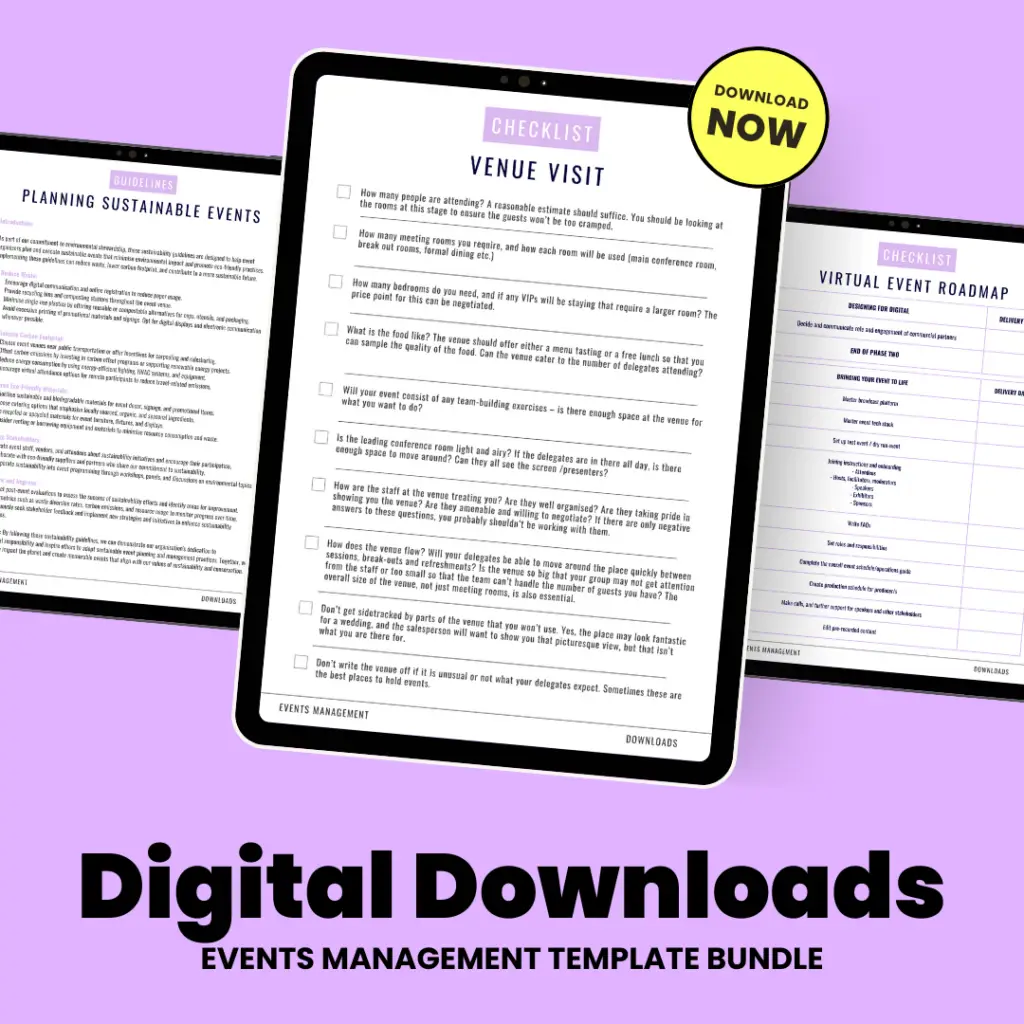Over the years, I’ve organized a variety of team-building events, from week-long forums to after-work drinks at the local bar. I imagine most Assistants have been asked to arrange something for their team, as we often serve as the go-to person for social activities in the office. So, having tips for planning team-building events is always useful. It’s a great accomplishment when we create an event that runs smoothly, and everyone has a fantastic time.
It’s also crucial to get team-building events right. A well-executed event can boost overall team performance, enhance job satisfaction, foster collaboration among colleagues, and support the organization’s broader goals. On the other hand, poorly organized events can fail to achieve anything worthwhile while costing the company a significant amount of money. With that in mind, here are my tips for planning successful team-building events.
In this article, we will share 20 do’s and don’ts for organizing team building events, ensuring that all your efforts in creating a team exercise are successful.

The digital materials provided in this bundle will equip you with the skills and strategies needed to excel in event planning and execution.
Do use team-building events to address specific challenges within your team. Link real workplace issues to the activities you plan, ensuring the event has practical relevance.
Don’t design activities that exclude team members due to physical demands. With diverse teams, consider varying fitness levels and abilities to ensure inclusivity. Virtual or mental challenges can be just as engaging.
Do solicit feedback during and after the event. Whether it’s a casual after-work meetup or a structured away day, gather insights to understand what worked and what can be improved. Share this feedback with management to highlight achievements and areas for growth.
Don’t make the event solely about work. While objectives are important, allow time for team members to relax and enjoy each other’s company without agenda-driven activities.
Do balance fun and challenging tasks. Mixing light-hearted activities with those that require teamwork and problem-solving keeps the event dynamic and maintains focus on team development.
Don’t overlook the need for clear objectives and a budget. Like any project, defining what you aim to achieve and how much you can spend is essential for success.
Do consider hiring a professional facilitator. An external expert can manage the event effectively, allowing you and your colleagues to participate fully without logistical distractions.
Don’t confine the event to your usual workspace. A change of environment can stimulate creativity and reduce everyday work pressures. If budget is a constraint, find an alternative space within your building that feels different.
Do choose an inspirational theme. The right theme can energise your team and reinforce the purpose of the event.
Don’t rely on clichéd team-building activities. In 2024, there are countless innovative options available. Instead of the usual drinks, perhaps organise a virtual reality experience or a cooking class that everyone can enjoy.
Do involve the team in planning. Encourage input and build anticipation, ensuring everyone knows what to expect and is enthusiastic about participating.
Don’t force uncomfortable activities like role-playing unless the team is genuinely receptive. Many people find such exercises awkward and unproductive.
Do capture memories. Take photos and videos to share afterward, reinforcing positive experiences and fostering a sense of community.
Don’t expect one event to resolve all team issues. Use it as a stepping stone for ongoing development and address deeper problems through continuous effort.
Do implement commitment cards or action plans. Have team members articulate their takeaways and commitments, sharing them with the group to promote accountability.
Don’t underestimate the importance of space and resources. Ensure your venue accommodates your activities comfortably, with all necessary equipment readily available.
Do allocate time for open discussion. Allow team members to voice concerns or ideas in a safe environment, which can reveal insights not previously considered.
Don’t skimp on rewards and recognition. Whether it’s prizes, certificates, or simple acknowledgments, appreciating your team’s efforts can significantly boost morale.
Do document the event’s outcomes. Compile notes, action items, and key discussions to share with the team, keeping the momentum going.
Don’t make team building a one-off event. Schedule regular activities throughout the year to reinforce connections and sustain team cohesion.
Ready to take your team-building events to the next level? Explore our Events Management Digital Download Bundles for comprehensive resources that simplify planning and execution. Visit The EA Campus Events Management Bundles to get started!
By following these do’s and don’ts, you’ll be well-equipped to organise impactful team-building events that resonate with your colleagues in 2024. Remember, the goal is to foster a collaborative environment where everyone feels valued and motivated to contribute their best.
Share this article:
Join 30,000+ Assistants receiving our carefully crafted weekly newsletter packed with valuable tips, tricks, and insights tailored specifically for Assistants like you.